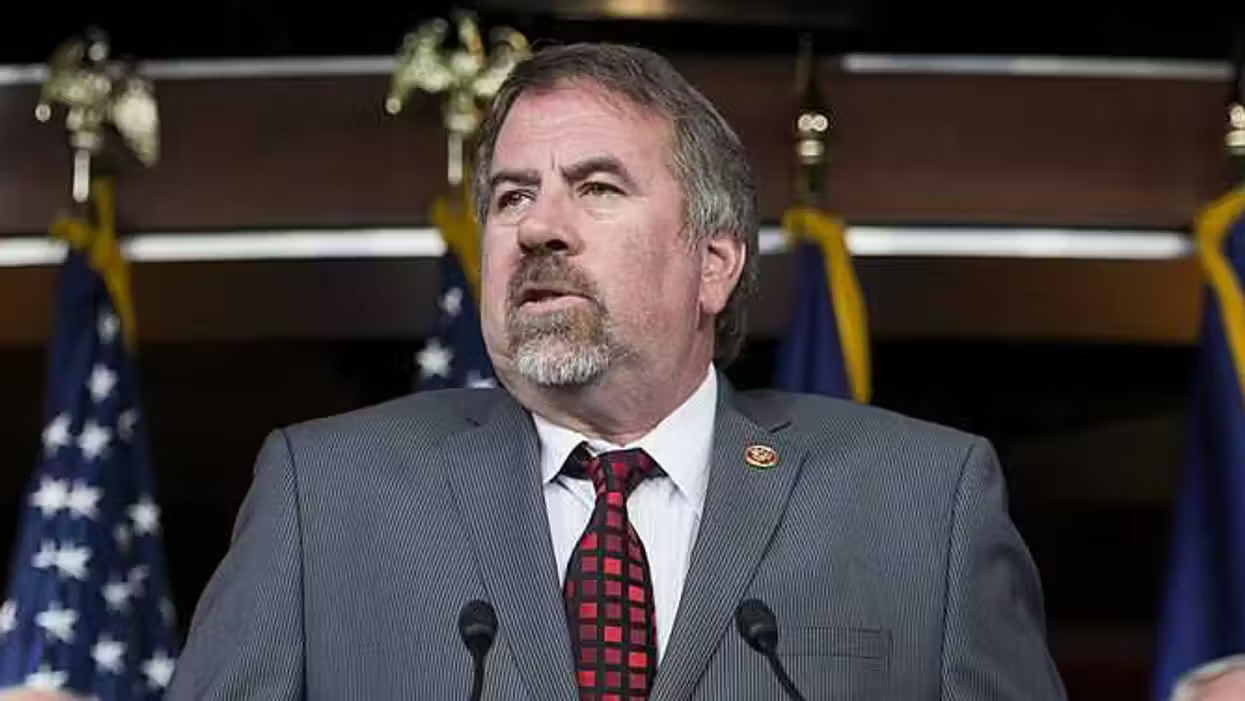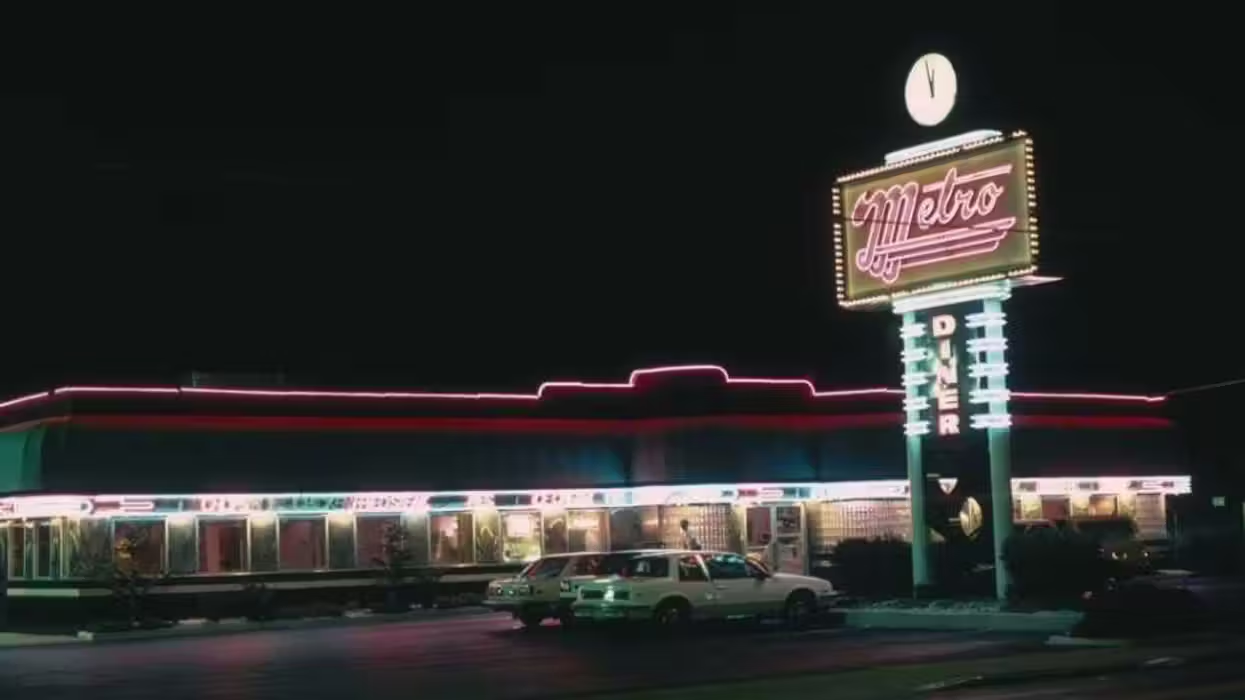Pope Francis' meeting with President Barack Obama at the White House this week comes at a time of a very complex relationship between the administration and American Catholics — one that has included not just policy clashes, but also legal fights over religious liberty.
Still, the differences over abortion, same-sex marriage and embryonic stem cell research are not necessarily eclipsed by the president and the pope's shared concerns of poverty, the environment and social justice, said Richard Way, a political science professor at Christendom College, a Catholic liberal arts college in Virginia.
 President Barack Obama meets with Pope Francis, March 27, 2014 at the Vatican. (AP Photo/Pablo Martinez Monsivais)
President Barack Obama meets with Pope Francis, March 27, 2014 at the Vatican. (AP Photo/Pablo Martinez Monsivais)
“Pope Francis is a holy man and he will likely stress to President Obama basic Catholic principles of respect for the human person and President Obama will probably listen respectfully,” Way told TheBlaze. “Pope Francis has greater faith in government solving problems, compared to Pope John Paul II, who had more faith in the individual and the rule of law. So Pope Francis should be very well received by the president.”
The White House expects some 15,000 people to be on the South Lawn for Wednesday's meeting, the first since Obama and Francis initially met in March 2014 at the Vatican. Invited guests at the South Lawn event will include Gene Robins, the first openly gay Episcopal bishop; Sister Simone Campbell, a liberal nun who frequently challenges stances from the Vatican; and two transgender activists, the Wall Street Journal reported.
One example of complexity that doesn’t fall along traditional left-right lines is the pope’s encyclical on the environment, largely in agreement with the Obama administration’s warnings about climate change. However, even that document says, “Since everything is interrelated, concern for the protection of nature is also incompatible with the justification of abortion.”
“The president and the pope will agree on issues of poverty and the environment,” said Rick Hinshaw, a spokesman for the Catholic League advocacy group. “In Pope Francis’s encyclical on the environment, he says all of God’s creation, including human life, is precious.”
Francis also played a key role in normalization of relations between the United States and Cuba, a major breakthrough for Obama.
The pope “sets his own agenda” and won’t be influenced by the administration, nor is he setting out to shape U.S. policy, said deputy White House national security adviser Ben Rhodes.
“I think the pope operates at a level of calling on all of us to care for the weak among us, which is obviously a central tenet to the church’s mission and certainly to this particular pope,” Rhodes told reporters in a conference call Thursday. “I think people of different political persuasions can find inspiration in that, no matter what they think of different policies. The notion that we all benefit when people are lifted out of poverty and there’s not the challenge of extreme inequality.”
Tackling poverty is important, but Hinshaw, of the Catholic League, said he hopes the pope and the president discuss the dispute over religious freedom, which concerns the Department of Health and Human Services' contraception mandate that was part of Obamacare.
“The president is using the power of the federal government to coerce the Catholic Church and people of other faiths to do things that are morally objectionable,” Hinshaw said. “The president could go a long way in reversing the policies of repressing religious freedom. We don’t expect him to back away on his position on abortion and marriage. But drawing back on the mandates would be a sign of good faith.”
The rift between Obama and Catholics pre-dated Obamacare, and even the Obama presidency. Prominent Catholics were kept out of participating in the 2008 Democratic convention in Denver, as well as the 2009 inauguration.
In a 2012 letter to bishops, Cardinal Timothy Dolan, the president of the U.S. Conference of Catholic Bishops, said bishops raised concerns about the mandate during a meeting with White House officials. Dolan wrote the White House officials “advised the bishops’ conference that we should listen to the ‘enlightened’ voices of accommodation.”
What followed, though, was an elongated legal battle over the ever-controversial contraceptive mandate — one that continues to rage three years later.
Nevertheless, even amid this contentious atmosphere, Obama won the Catholic vote in 2008 and 2012.
Hinshaw argues that what pollsters call the Catholic vote should be looked at carefully.
“We’ve got to determine what is the Catholic vote, because surveys now conflate practicing Catholics and non-practicing Catholics,” Hinshaw said. “On the issues of life and marriage, most church-going Catholics are in tune with church teachings.”
But Professor Way, of Christendom College, says that despite social conservatism, there has been a long history of Catholics backing big government.
“Many Catholics believe social justice comes from the government,” Way said. “Many bishops have long sought government health care, then the church raised objections when that led to the HHS mandate. That was only natural step under government health care.”
The issue over some of the controversial attendees found it's way into the 2016 presidential campaign.
"President Obama's classless decision to transform Pope Francis' visit to the White House into a politicized cattle call for gay and lesbian activists is an insult to the Pope and millions of Catholics," former Arkansas Gov. Mike Huckabee said in a statement. "Why is it that Obama goes to extremes to accommodate Muslim terrorists but shows nothing but disdain for Christians? This is a new low for an administration that will go down as the most anti-Christian in American history."

 President Barack Obama meets with Pope Francis, March 27, 2014 at the Vatican. (AP Photo/Pablo Martinez Monsivais)
President Barack Obama meets with Pope Francis, March 27, 2014 at the Vatican. (AP Photo/Pablo Martinez Monsivais)






